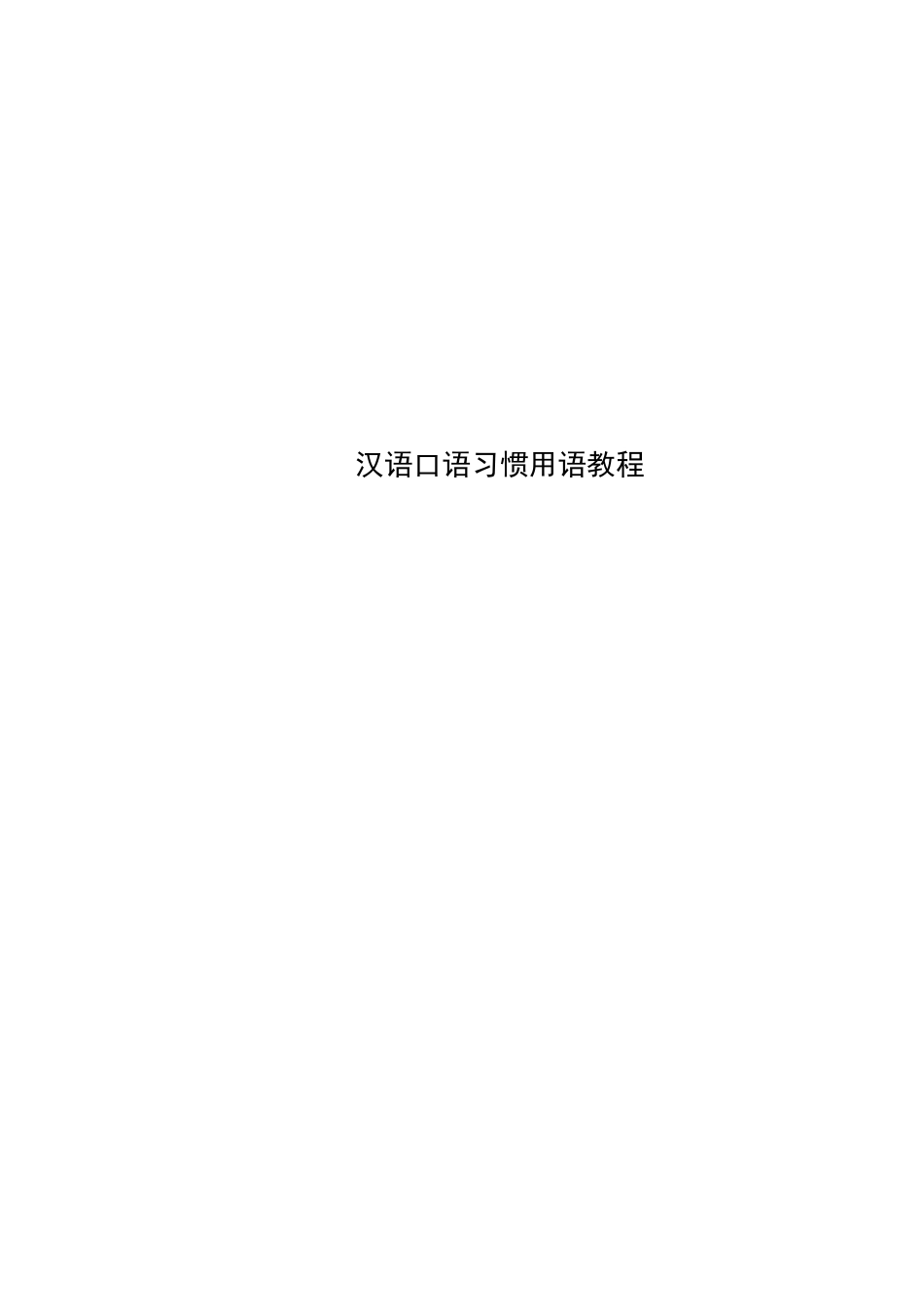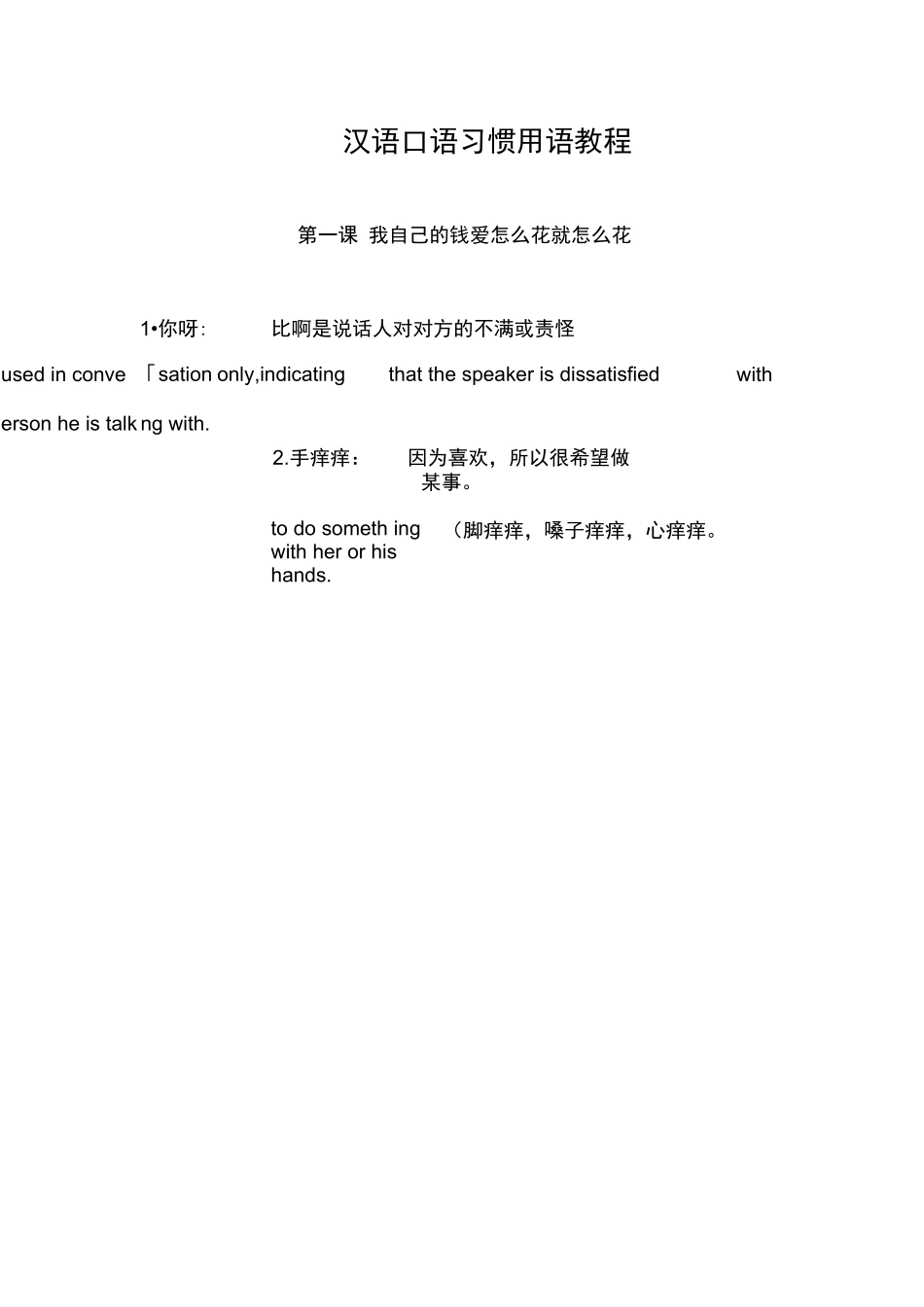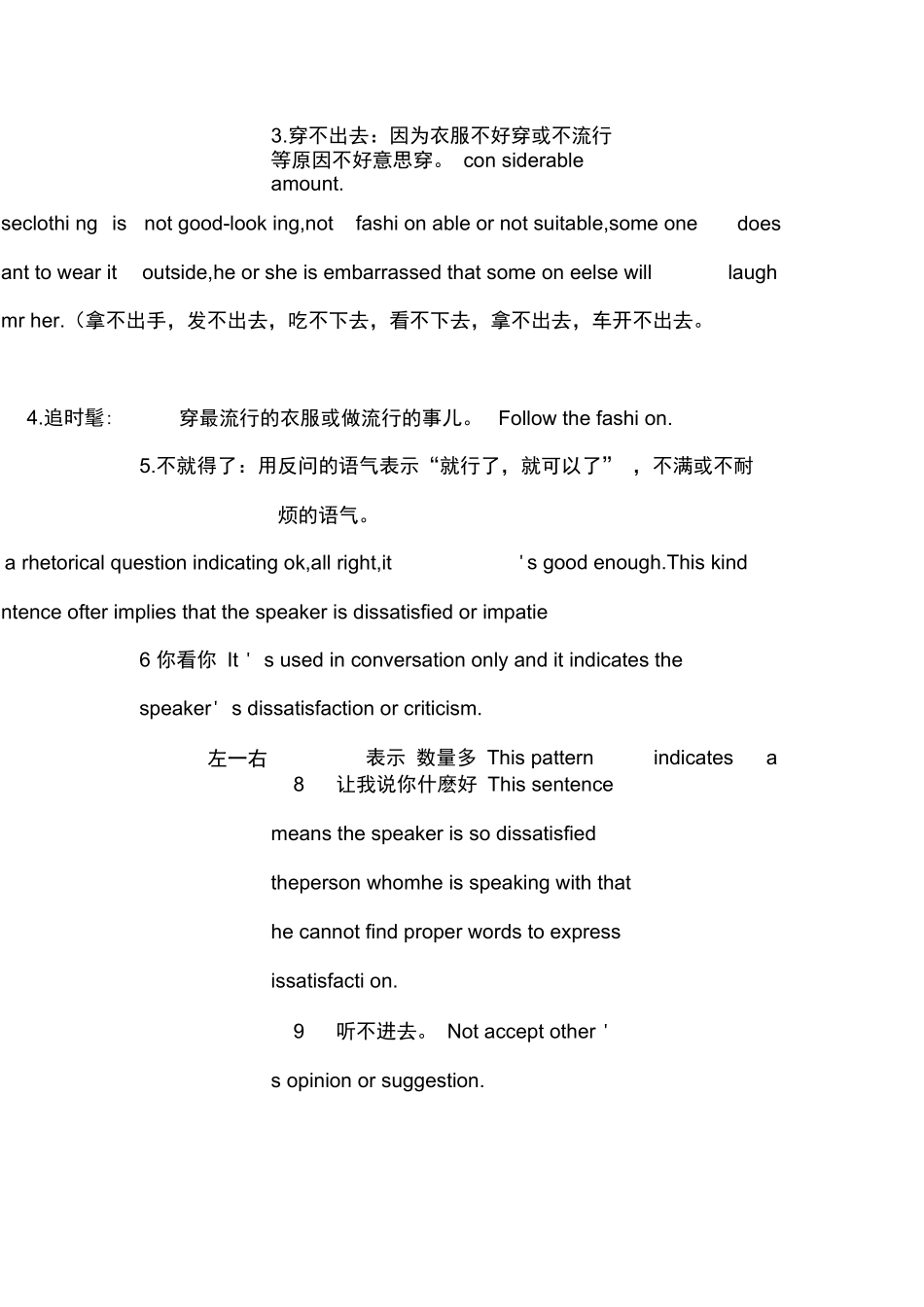汉语口语习惯用语教程汉语口语习惯用语教程第一课 我自己的钱爱怎么花就怎么花2.手痒痒:因为喜欢,所以很希望做某事。to do someth ing with her or his hands.(脚痒痒,嗓子痒痒,心痒痒。used in conve1•你呀:比啊是说话人对对方的不满或责怪「sation only,indicatingthat the speaker is dissatisfiedwitherson he is talk ng with.3.穿不出去:因为衣服不好穿或不流行等原因不好意思穿。 con siderable amount.8让我说你什麽好 This sentence means the speaker is so dissatisfiedtheperson whomhe is speaking with that he cannot find proper words to express issatisfacti on.9听不进去。 Not accept other ' s opinion or suggestion.seclothi ng isant to wear itnot good-look ing,notfashi on able or not suitable,some oneoutside,he or she is embarrassed that some on eelse willmr her.(拿不出手,发不出去,吃不下去,看不下去,拿不出去,车开不出去。4.追时髦:穿最流行的衣服或做流行的事儿。 Follow the fashi on.doeslaugh5.不就得了:用反问的语气表示“就行了,就可以了” ,不满或不耐烦的语气。a rhetorical question indicating ok,all right,it's good enough.This kindntence ofter implies that the speaker is dissatisfied or impatie nt.6 你看你 It ' s used in conversation only and it indicates thespeaker' s dissatisfaction or criticism.左一右表示 数量多 This patternindicatesa10 一年至 U 头:整年 Whole year, from the first day of the yearto the last day.11让我说你什麽好 This sentence means the speaker is so dissatisfiedtheperson whomhe is speaking with that he cannot find proper words to express issatisfacti on.12听不进去 Not accept other ' s opinion or suggestion.13. 多没面子: 丢面子Lose face.14. 看人家:表示羡慕,佩服某人。The pattern indicates thespeaker admires some one.15 得什么似的 It indicates the action is to such a degree that there is no way to express clearly.16.又来了 :啰嗦 表示不想听,看,不耐烦This speaker has ...


